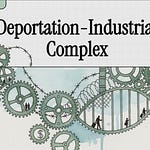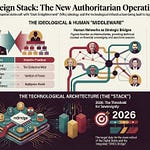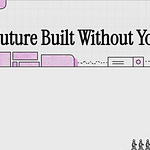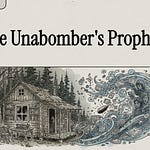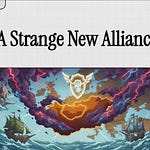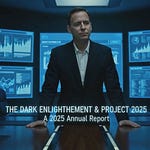The Illiteracy of the 21st Century:
Unlearning the Lies
In an age where information is readily available, it may seem strange to talk about “illiteracy.” Traditionally, being literate meant knowing how to read and write, but in today’s world, true literacy goes far beyond these basic skills. As the image poignantly illustrates, the new illiteracy isn’t about reading or writing — it’s about the inability to question and unlearn the countless lies we’ve been taught to believe. In many ways, unlearning these lies has become the new frontier of enlightenment and intellectual freedom.
1. The Puppet Strings of Information Control
The image of a puppet being controlled by strings is a powerful symbol of how information can shape, manipulate, and control our beliefs, behaviors, and perceptions. Modern society is bombarded by media, advertisements, political narratives, and cultural ideologies that subtly (and sometimes overtly) influence what we think is true. The hands pulling the strings are often invisible but incredibly powerful, shaping entire populations through narratives designed to keep us compliant and, at times, misinformed.
Who Holds the Strings?
Governments and Politicians: Political powers can control the flow of information, creating narratives that support their agendas while stifling dissent.
Corporations and Advertisers: Through persuasive marketing, corporations can mold our desires, perceptions of success, and even our self-worth.
Media Outlets: Media, often controlled by a handful of powerful owners, can frame stories in ways that align with certain ideological, financial, or political interests.
Social Media Algorithms: The content we see on social media is largely controlled by algorithms that prioritize engagement. This often means pushing emotionally charged or sensationalized information, which may not always be factual.
Each of these forces holds a set of “strings” that subtly influence how we perceive reality. The challenge of the 21st century is learning how to identify these strings and, where possible, cut them to form a clearer understanding of reality.
2. The Rise of Misinformation and Disinformation
Today’s information landscape is polluted with misinformation (unintentionally false information) and disinformation (deliberately false information meant to deceive). These distortions of truth shape our beliefs, often without us realizing it. We are fed narratives that align with certain interests and agendas, blurring the line between truth and fiction.
Why Are We Vulnerable?
Cognitive Biases: Humans are wired to favor information that aligns with our existing beliefs (confirmation bias), making us more susceptible to disinformation that reinforces our worldview.
Emotional Manipulation: Misinformation often relies on emotional triggers — anger, fear, outrage — to bypass critical thinking and prompt knee-jerk reactions.
Information Overload: With so much information available, it’s easy to feel overwhelmed and rely on shortcuts, like trusting familiar sources or simply going along with popular narratives.
Learning to unlearn means recognizing the impact of these factors and developing the intellectual resilience to question everything we hear, even if it’s uncomfortable or challenges our existing beliefs.
3. The Danger of Blind Acceptance
The phrase “You’ve been lied to about everything” may sound dramatic, but it points to a sobering truth: much of what we think we know has been shaped by others with their own motivations and agendas. Blind acceptance of information, particularly in the digital age, can have severe consequences.
Consequences of Blind Acceptance
Loss of Personal Autonomy: When we accept information without question, we allow others to make decisions for us, from what we buy to how we vote.
Erosion of Democracy: In democratic societies, an informed citizenry is essential for holding leaders accountable. When misinformation shapes public opinion, democracy itself is at risk.
Social Division: Manipulated narratives can create divisions between groups, making us distrustful of one another and susceptible to “us vs. them” thinking.
In order to reclaim our autonomy and resist manipulation, we need to cultivate a mindset that values skepticism and critical inquiry. Accepting everything we’re told without question is a form of intellectual submission that ultimately harms both individuals and society.
4. Unlearning: The Key to Freedom
Unlearning is a deliberate, often challenging process of questioning the beliefs and assumptions we’ve taken for granted. It involves examining our own biases, questioning the narratives we’ve been taught, and seeking out a diversity of perspectives. True literacy in the 21st century is the ability to think independently, to separate fact from fiction, and to resist manipulation.
Steps to Begin the Unlearning Process
Cultivate Critical Thinking: Ask questions about the source, intent, and evidence behind every piece of information you encounter.
Diversify Information Sources: Avoid relying on a single news source or perspective. Seek out a variety of viewpoints to form a more complete understanding.
Recognize Emotional Manipulation: Be aware of content designed to provoke strong emotional responses, as it may bypass logical thinking and critical analysis.
Engage in Self-Reflection: Acknowledge and examine your own biases. Ask yourself why you believe certain things and where those beliefs originated.
Unlearning takes humility, curiosity, and the willingness to challenge our own beliefs. It’s a skill that, once developed, can free us from the puppet strings of information control.
5. The Role of Media Literacy
One of the most powerful tools we have in this new era of information control is media literacy — the ability to critically analyze and evaluate information across various media platforms. Educating ourselves and others on how to recognize biases, question sources, and identify misinformation is crucial to developing a society that values truth over propaganda.
How to Practice Media Literacy
Fact-Checking: Verify information through credible sources before accepting or sharing it.
Look for Red Flags: Be cautious of clickbait, exaggerated claims, and content that lacks credible sources.
Question Visual and Audio Manipulations: With the rise of deepfakes and edited content, visual information is also susceptible to manipulation. Don’t assume that what you see is always real.
Teach Others: Spread media literacy by encouraging friends, family, and colleagues to question information rather than taking it at face value.
Building a media-literate society requires effort and vigilance, but it’s an essential step in freeing ourselves from manipulation.
6. Why Unlearning is Essential for the Future
The message of the image is clear: in a world saturated with manipulation, staying alive is not enough. Thriving in the 21st century requires us to become intellectual pioneers — willing to unlearn the lies we’ve been told and uncover deeper truths. As we face challenges like climate change, inequality, and political instability, our ability to discern fact from fiction will directly impact our ability to make informed decisions for a better future.
A society that cannot distinguish truth from lies is vulnerable to exploitation, division, and oppression. By learning to unlearn, we empower ourselves to think critically, act independently, and ultimately contribute to a society that values truth and justice.
Cutting the Strings
The true literate of the 21st century are those who see the strings, question their existence, and work to cut them. They are individuals who recognize that knowledge is not just about learning new things but also about unlearning the lies that keep us tethered. As we navigate an era of unprecedented manipulation, let us strive to be informed, independent, and intellectually free — ready to face the challenges ahead with clarity and conviction.
Let’s embrace the call to unlearn, to question, and to seek truth in a world that desperately needs it. The future of our minds — and perhaps our societies — depends on it.






